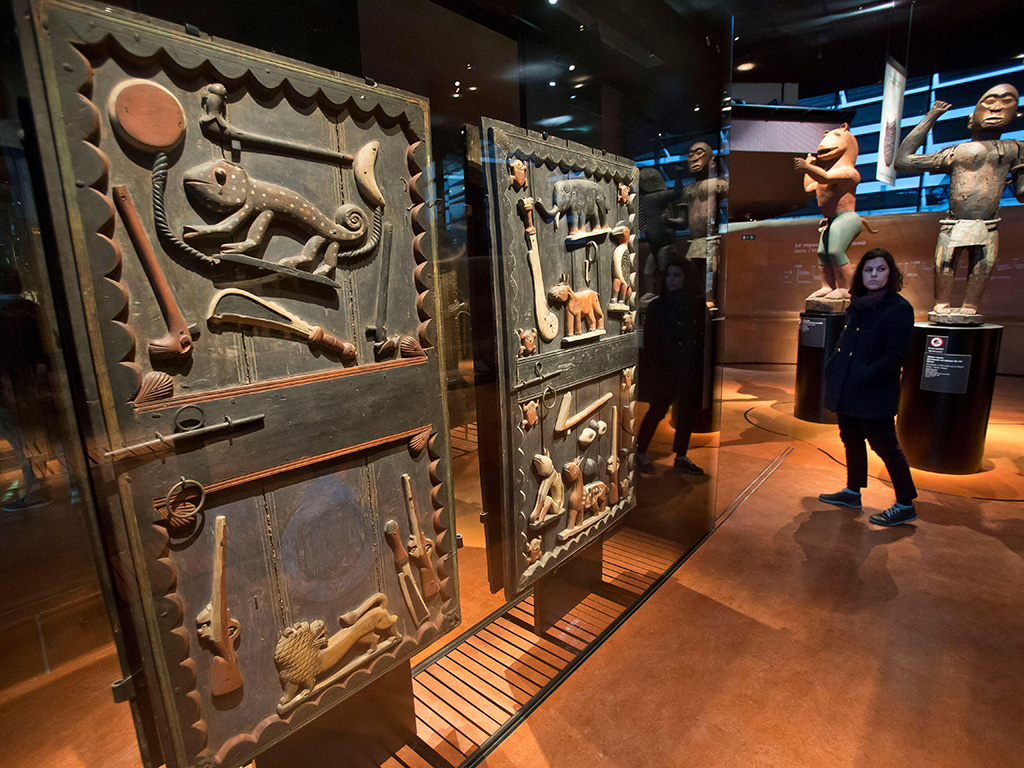
“I cannot accept that a large share of several African countries’ cultural heritage be kept in France,” Emmanuel Macron said on a 2017 official visit to Ouagadougou, the capital of Burkina Faso. Speaking at the University of Ouagadougou, he acknowledged that there is “no valid, lasting and unconditional justification” for artwork taken from the continent during the colonial period to be held in Europe permanently. He added that he wanted “the conditions to be in place within five years for the… return of African heritage to Africa”.
Yet in the six years since, despite demands by multiple African countries for art taken from the continent to be returned, progress to repatriate looted artwork has been glacial. Tens of thousands of pieces are estimated to be held in France, yet only a handful have so far been returned.
In an apparent attempt to speed matters up, on 27 February Macron announced a bill to streamline the process of restitution. The proposed law will “codify the methodology and criteria for proceeding”, Macron said, ahead of his 18th visit to Africa since taking office. He added that he hoped the law would fit in with a larger effort of European countries restoring looted art to their places of origin.
The scale of the issue is staggering. Nearly all – 90-95 per cent – of sub-Saharan Africa’s cultural heritage is estimated to be located outside Africa. Statistics compiled by the historian Bénédicte Savoy and the Senegalese academic Felwine Sarr suggest that hundreds of thousands of artworks are held in the collections of European museums, many of which were created with the intent to show off their countries’ colonial enterprise.
An astonishing 180,000 pieces of African art are held in Belgium’s Royal Museum for Central Africa, originally created to showcase the country’s brutal rule over Congo. The British Museum in London and Quai Branly Museum in Paris both hold around 70,000 pieces.
While some pieces and artefacts were straightforwardly looted under colonialism, even those pieces nominally purchased by Europeans were in effect plundered because of the unequal power relations between coloniser and colonised, according to Savoy and Sarr’s landmark report on African art in Europe.
Since Macron’s 2017 speech, France has restored a few dozen artworks to African countries. In 2020, the crown of Ranavalona III, the last sovereign to rule Madagascar before French rule, was returned to the country, although formally only on temporary loan. A year later, 26 artefacts taken from the Royal Palaces of Abomey in 1892 by French troops and held in the collection of the Quai Branly Museum were repatriated to Benin. Macron recently pledged that the massive Djidji Ayokwe drum, taken from the Tchaman people of present-day Côte d’Ivoire in 1916, will also soon be handed back.
The process has been slowed by legal obstacles, including French laws that protect the “inviolability” of national collections, meaning returns must be approved by parliament on an individual basis. Calls to restore looted art have also been met with objections in principle: in 2020, Stéphane Martin, the president of the Quai Branly Museum, defended the “universality” of art displayed in museums, irrespective of its place of origin.
Some curators worry about the conditions that fragile objects might be held in, sometimes in countries with unstable and corrupt politics. African governments reject this view, arguing that investments in state-of-the-art museums such as Senegal’s Museum of Black Civilisations or the planned Edo Museum of West African Art in Nigeria prove they can be trusted to safeguard their own cultural artefacts.
Still, Macron’s effort fits within a wider movement in Europe to restitute looted art, a trend that is gaining momentum, if rather slowly. Germany repatriated dozens of Benin bronze statues to Nigeria late last year, originally looted by British soldiers in 1897. The University of Aberdeen returned a bronze stolen during the same expedition in 2021.
Yet many other ownership disputes, some outside Africa, are ongoing. The Elgin marbles, taken from Athens to London by Thomas Bruce in the early 19th century, are perhaps the highest-profile example of art taken under dubious conditions turning up in a Western capital. The quarrel continues to poison relations between Greece and the UK.
There is more than a hint of geopolitics around Macron’s stated objective of returning artworks to Africa. The announcement came as he prepared for a visit to the continent to try and salvage influence among African states, some of which are increasingly turning to Russia and China instead of the ex-colonial power. Even so, the French president is right to reopen the issue of art brought to Europe under colonialism, although the pace of returns suggests his actions do not yet match his ambitious rhetoric.
Read more:
Stop dithering, British Museum – give the Elgin marbles back
How the hieroglyphic code was cracked





